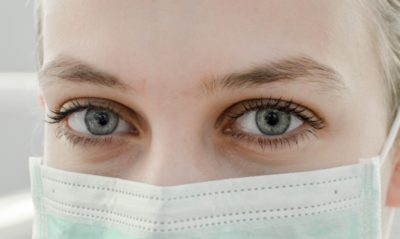Unique Employment has a relationship with Aetna through our PEO company UniqueHR. See information below from Aetna regarding the coronavirus outbreak.
What you need to know about the new coronavirus disease called COVID-19.
As the international coronavirus outbreak continues to evolve, CVS Health in- house clinicians and our Enterprise Response and Resiliency (ERR) team are closely monitoring the situation and are in regular contact with the Centers for Disease Control and Prevention (CDC) and World Health Organization (WHO). For the latest information, please visit the CDC and/or WHO websites dedicated to this issue.
What is this new coronavirus disease called COVID-19?
The CDC and WHO are actively monitoring the new coronavirus disease called COVID-19, which causes respiratory illness. The virus, which has infected thousands of people worldwide and caused more than 1,000 deaths, originated in Wuhan City, China. Additional cases have now been reported in the United States. Visit the CDC Traveler’s Health website for travel notices and precautions.
Although COVID-19 is being compared to Severe Acute Respiratory Syndrome- coronavirus (SARS-CoV), the symptoms of this new virus appear to be milder.
Human coronaviruses may cause mild to moderate illness in people. Some human coronaviruses have been known to cause more severe illness. Common signs of infection include respiratory symptoms, fever, cough, shortness of breath and breathing difficulties. In more severe cases, infection can cause pneumonia, severe acute respiratory syndrome, kidney failure, and even death.
Human coronaviruses are usually spread from an infected person to others through the air by coughing and sneezing; close personal contact (such as shaking hands); and touching an object or surface with the virus on it, then touching your mouth, nose, or eyes before washing your hands.
How to protect yourself and others
Although there are currently no vaccines available to protect against human coronavirus infection, you may be able to reduce your risk of infection by washing your hands often with soap and water for at least 20 seconds; avoiding touching your eyes, nose, or mouth with unwashed hands; and avoiding close contact with people who are sick.
For information about hand washing, see the CDC’s Clean Hands Save Lives website.
If you have cold-like symptoms, you can help protect others by staying home while you are sick; avoiding close contact with other people; covering your mouth and nose with a tissue when you cough or sneeze (then throwing the tissue in the trash and washing your hands); and cleaning and disinfecting objects and surfaces.
What to do if you suspect that a loved one or you have contracted COVID-19
Most people with coronavirus illness will recover on their own. Although there are no specific treatments for illnesses caused by coronaviruses, you can take the following actions to relieve symptoms if you are mildly sick:
- Take pain and fever medications. Ask your pharmacist how they may interact with any medications you currently take. (Caution: The CDC and the American Academy of Pediatrics (AAP) recommend not giving aspirin to )
- Use a room humidifier or take a hot shower to help ease a sore throat and
- Drink plenty of
- Stay home and
If you are concerned about your symptoms, please contact your local healthcare provider. If you were in China in the last 14 days, CDC offers the following guidance: https://www.cdc.gov/coronavirus/2019-ncov/about/steps-when-sick.html
You can find more information on the new coronavirus disease called COVID-19 at these links:
- https://www.cdc.gov/coronavirus/2019-ncov/index.html
- https://www.who.int/emergencies/diseases/novel-coronavirus-2019
- https://www.cdc.gov/coronavirus/2019-ncov/about/steps-when-sick.html




No comments yet. You should be kind and add one!
The comments are closed.